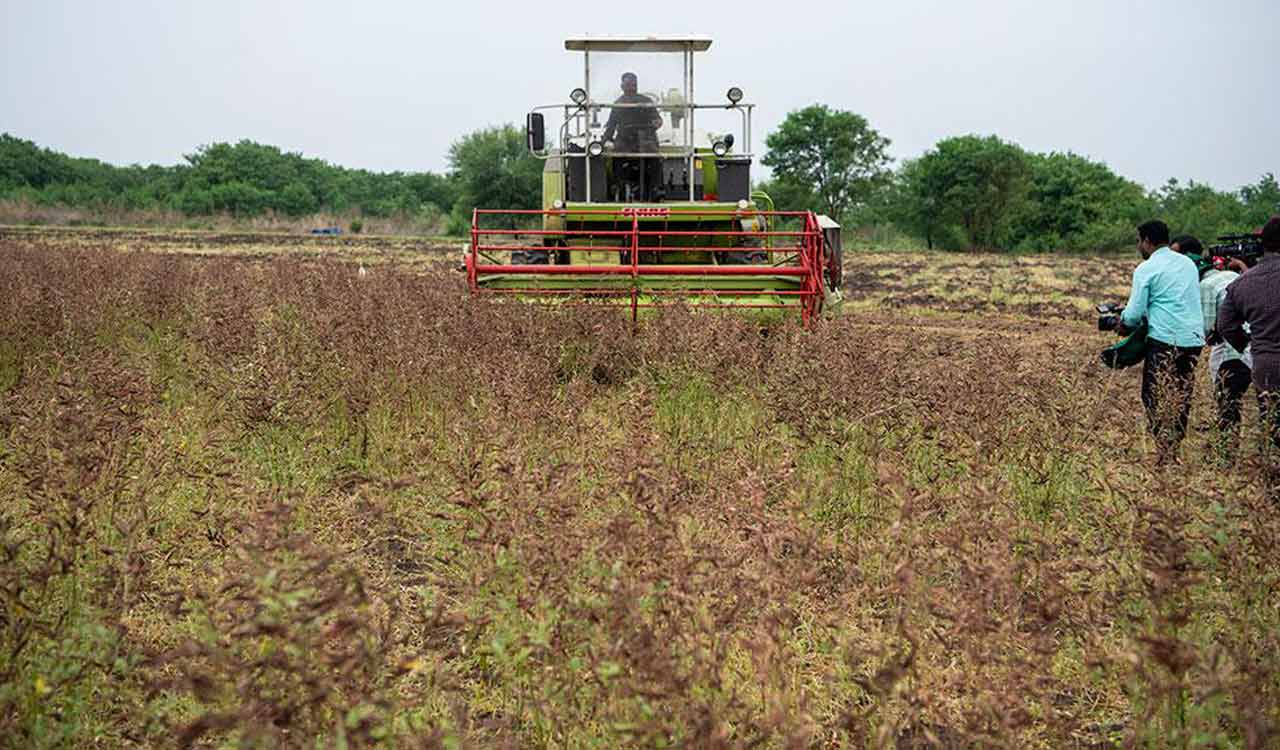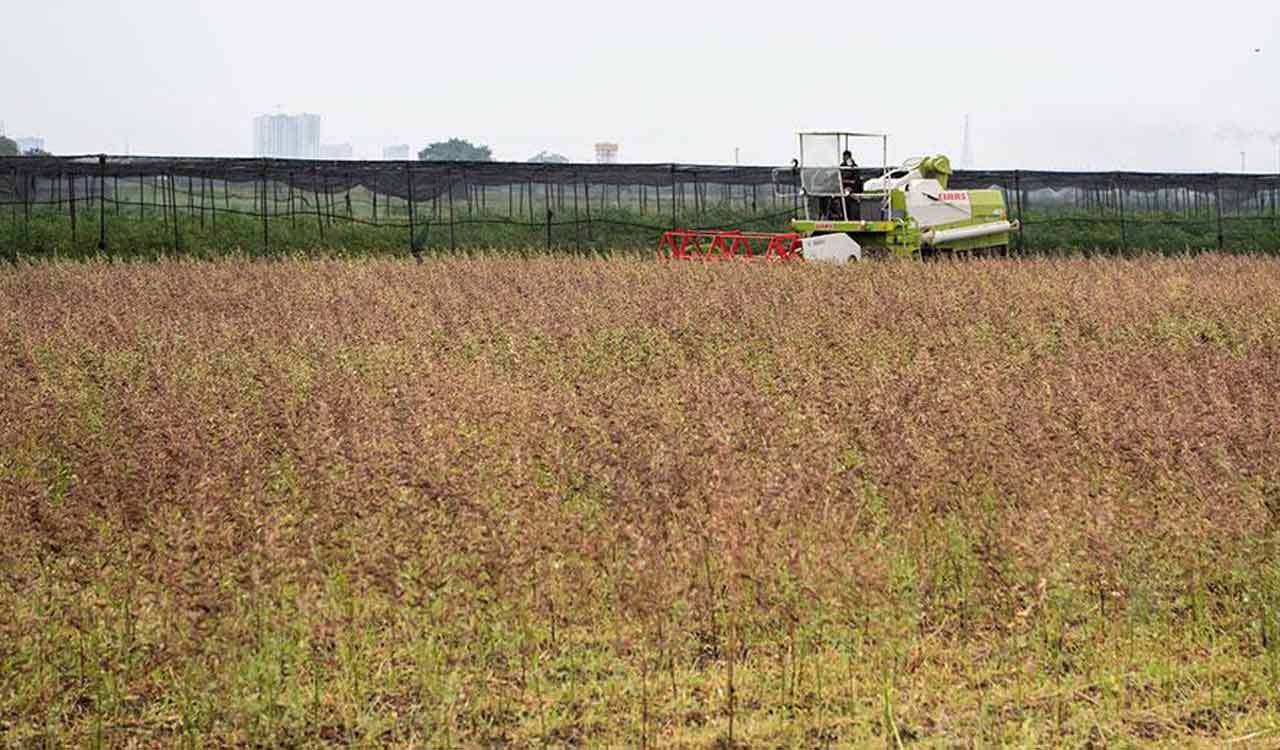World’s first extreme heat-tolerant pigeonpea developed via speed breeding at ICRISAT in Hyderabad
ICRISAT scientists have developed ICPV 25444, India’s first heat-tolerant pigeonpea cultivar, capable of maturing in just 125 days. This innovation enables cultivation even in extreme summer, promising improved food security and resilience against climate challenges for Indian farmers.
Published Date - 9 June 2025, 03:30 PM
Hyderabad: In a significant advancement for Indian agriculture, scientists at the International Crops Research Institute for the Semi-Arid Tropics (ICRISAT) have developed ICPV 25444, a first-of-its-kind pigeon pea cultivar that can withstand high summer temperatures and mature in just 125 days.
This heat-tolerant, photo- and thermo-insensitive cultivar has been successfully tested in Karnataka, Odisha, and Telangana in India, demonstrating yields of 2 tons per hectare. Crucially, it represents a breakthrough in pigeonpea cultivation, enabling the crop to be grown not only during the traditional rainy (kharif) season but also in the extreme heat of summer, where temperatures reach up to 45°C.

Until now, pigeonpea has been limited to specific seasons due to its sensitivity to photoperiod and temperature. ICPV 25444, which is currently under field trials marks a turning point – transforming pigeonpea into an all-season crop and opening new possibilities for Indian farmers.

“This breakthrough in developing a summer-adapted pigeonpea cultivar is a shining example of what science can achieve when driven by urgency and purpose. By transforming pigeonpea into an all-season crop, our scientists have delivered a timely solution with the potential to address pulse shortages and climate challenges facing farmers across India,” said Dr Himanshu Pathak, Director General, ICRISAT.
“This breakthrough was made possible by the world’s first pigeonpea speed-breeding protocol, developed by ICRISAT in 2024. The protocol enabled researchers to grow up to four generations per year, reducing the time required to develop a new variety from 15 years to just five,” said Dr Stanford Blade, Deputy Director General-Research and Innovation, ICRISAT.